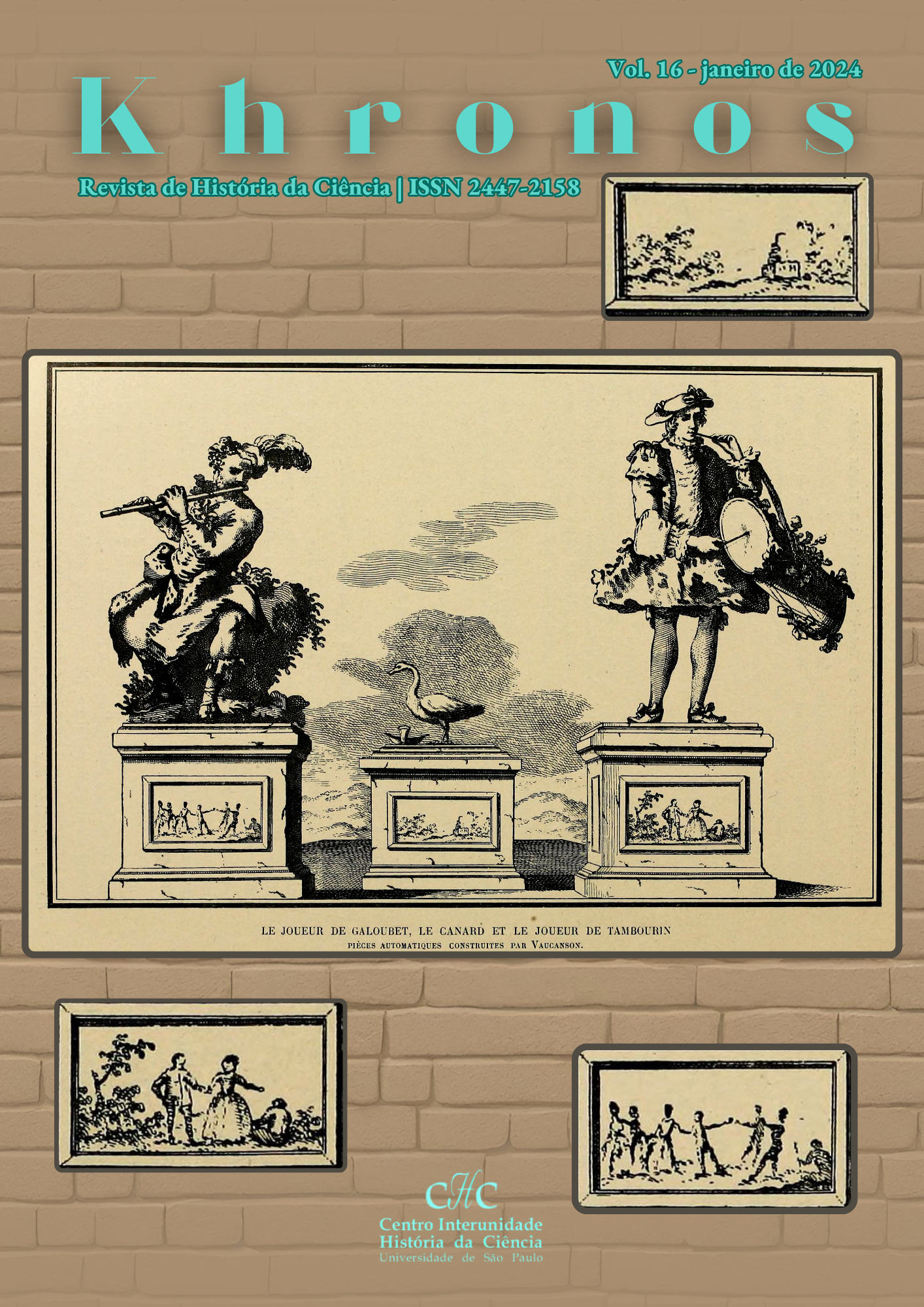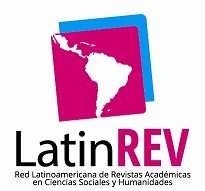Considerations on the changing statute of science throughoutthe 20th century: from universal truth to contingential truth
DOI:
https://doi.org/10.11606/issn.2447-2158.i16p1-20Keywords:
Science Statute, Scientific Objectivity, Universal Truth, Contingent TruthAbstract
The aim of this essay is to trace how the statute of science has changed over the course of the 20th century. At the beginning of the text, the intention is to present two science models based on the analysis of a diagram. The change between these models is understood through a set of works from different areas of the 20th and 21st centuries. It appropriates science and its structuring elements as an object for carrying out a historical synthesis and reflect on the new biases that have made science more diversified. The text is an encouragement to students who are interested in deepening their knowledge of science and its history.
Downloads
References
BLOCH, Marc. Apologia da História ou O ofício de historiador. Tradução de André Telles. Rio de Janeiro: Jorge Zahar Ed., 2001.
BRAUNSTEIN, Jean-François. Historical Epistemology, Old and New. In: BRAUNSTEIN, J. F.; SCHMIDGEN, H., SCHÖTTLER, P. Epistemology and History. From Bachelard and Canguilhem to Today’s History of Science. Berlim: Max-Planck-Institut für Wissenschaftsgeschichte, Preprint 434, pp. 33-40, 2012.
DASTON, Lorraine. Historicidade e objetividade. Tradução de Derley Menezes Alves e Francine Legelski (org. Tiago Santos Almeida). São Paulo: LiberArs, 2017.
DASTON, Lorraine; GALISON, Peter. Objectivity. Nes York: Zone Books, 2007.
DUPRÈ, Sven; SOMSEN, Geert. The History of Knowledge and the Future of Knowledge Societies. Ber. Wissenschaftsgesch. n. 42, 186-199, 2019. Disponível em: https://onlinelibrary.wiley.com/doi/full/10.1002/bewi.201900006. Acesso em: 10 jul. 2022.
FLECK, Ludwik . Gênese e Desenvolvimento de um Fato Científico: introdução à doutrina do estilo de pensamento e do coletivo de pensamento. Belo Horizonte: Fabrefactum Editora, 2010.
FOUCAULT, Michel. A ordem do discurso: aula inaugural no Collège de France, pronunciada em 2 de dezembro de 1970. Tradução de Laura Fraga de Almeida Sampaio. São Paulo: Edições Loyola, 2012.
GAVROGLU, Kostas. Elementos da História das Ciências. In: O Passado das Ciências como História. Porto: Porto Editora, 2007.
HARAWAY, Donna. Saberes localizados: a questão da ciência para o feminismo e o privilégio da perspectiva parcial. Cadernos Pagu, n. 5, 1995. Disponível em: https://periodicos.sbu.unicamp.br/ojs/index.php/cadpagu/article/view/1773. Acesso em: 30 jul. 2022.
HARDING, Sandra. Objetividade mais forte para ciências exercidas a partir de baixo. Revista Em Construção, n. 5, p. 143-162, 2019.
Disponível em: https://www.e-publicacoes.uerj.br/index.php/emconstrucao/article/view/41257. Acesso em: 25 nov. 2022.
HELDEN, Albert van e HANKINS, Thomas L.. Introduction: Instruments in the History of Science. Osiris, v. 9, 1994. Disponível em: https://www.jstor.org/stable/301995. Acesso em: 02 jul. 2022.
KUHN, Thomas. A estrutura das revoluções científicas. São Paulo: Perspectiva, 2013.
LATOUR, Bruno. A ciência em ação: como seguir cientistas e engenheiros sociedade afora. São Paulo: Unesp, 2000.
LATOUR, Bruno. Jamais fomos modernos: ensaio de antropologia simétrica. São Paulo: Editora 34, 2008.
MAIA, Carlos. Introdução. In: História das Ciências: uma história de historiadores ausentes. Rio de Janeiro: EdUERJ, 2013.
MIGNOLO, Walter. Os esplendores e as misérias da ‘ciência’: colonialidade, geopolítica do conhecimento e pluri-versalidade epistêmica. In: SANTOS, Boaventura S. (org) Conhecimento prudente para uma vida decente. São Paulo: Ed. Cortez, 2004.
NYHART, Lynn K.. Historiography of the History of Science. In: LIGHTMAN, Bernard (ed.). A Companion to the History of Science. John Wiley & Sons Incorporated, 2016.
ORESKES, Naomi. Why trust science? Perspectives from the History and Philosophy of Science. In: Why trust science?. Princeton/Oxford, Princeton University Press, 2019.
PESTRE, Dominique. Por uma nova história social e cultural das ciências: novas definições, novos objetos, novas abordagens. Cadernos IG Unicamp, n. 1 v. 6, 1996. Disponível em: https://ctsadalbertoazevedo.files.wordpress.com/2014/09/pestre1996.pdf. Acesso em: 25 out. 2022.
PLANCK, Max. Autobiografia científica e outros ensaios. Tradução: Estela dos Santos Abreu. Rio de Janeiro: Editora Contraponto, 2012.
RAJ, Kapil. Além do pós-colonialismo... E pós-positivismo. Circulação e a História Global da Ciência. Tradução de Juliana Freire. Revista Maracanan, n. 13, 2015. Disponível em: https://www.e-publicacoes.uerj.br/index.php/maracanan/article/view/20133. Acesso em: 26 jul. 2022.
SHAPIN, Steven. A revolução científica. Lisboa: Difel, 1999.
SHAPIN, Steven; SCHAFFER, Simon. El Leviathan y la bomba de vacio: Hobbes, Boyle y la vida experimental. Buenos Aires: Universidad Nacional de Quilmes Editorial, 2005.
Downloads
Published
Issue
Section
License
Copyright (c) 2024 Alexander Lima Reis

This work is licensed under a Creative Commons Attribution-NonCommercial 4.0 International License.
Authors who publish in this journal agree to the following terms:
- Authors retain the copyright and grant the journal the right to first publication, with the work simultaneously licensed under the Creative Commons Attribution License in the "Attribution-NonCommercial 4.0 International" (CC BY-NC 4.0) modality that allows sharing of the work with acknowledgment of authorship and initial publication in this magazine.
- Authors are authorized to assume additional contracts separately, for non-exclusive distribution of the version of the work published in this journal (eg, publishing in institutional repository or as a book chapter), with acknowledgment of authorship and initial publication in this journal.
- Authors are allowed and encouraged to publish and distribute their work online (eg in institutional repositories or on their personal page) at any point before or during the editorial process, as this can generate productive changes, as well as increase impact and citation of the published work (See The Effect of Open Access).
- Any doubts or complaints about copyright must be directed to the Editorial Board or qualify and express themselves in accordance with the guidelines of the Committee on Publications Ethics (COPE).





